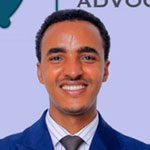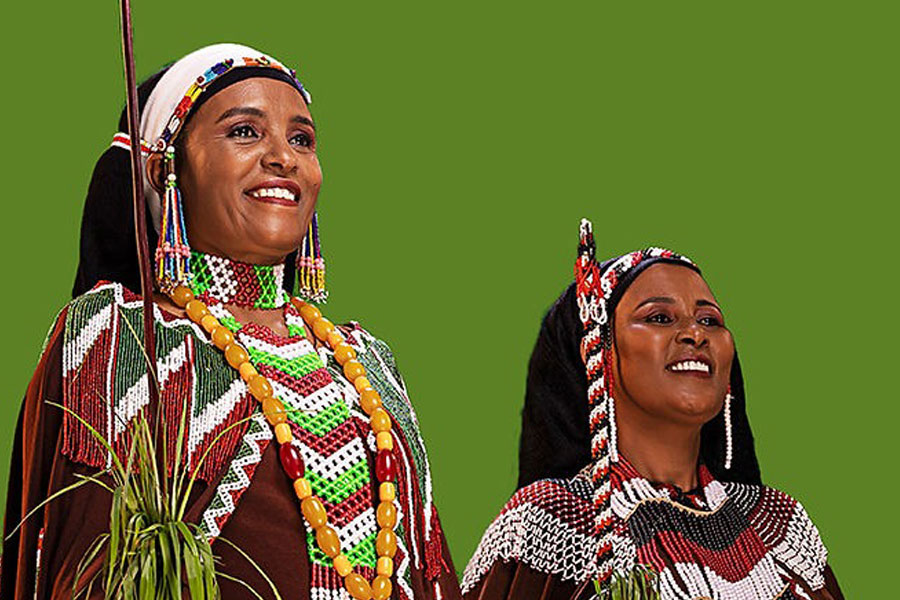
Jun 12 , 2021
By Yehualashet Tamiru Tegegn
The main objective of the Wolrd Trade Organisation (WTO) is spelt out in its preamble. It enhances welfare by reducing barriers (tariff and non-tariff barriers), improving equal treatment (through pillars of the most-favoured nation and National Treatment Standards) and bolstering economic developments through free trade.
However, as the most influential person of his generation, George Orwell once said in Animal Farm, all animals are equal, but some animals are more equal than others. Likewise, under WTO, all member states are equal, but some states are more equal than others. Thus, developing countries are given different and more favoured treatment in the WTO to increase the development relevance to the trading system. Unfortunately, many countries abuse this power to categorise themselves as developing countries to take advantage of specific benefit and exceptions which otherwise will not be available.
This would be relevant for Ethiopia, which is undergoing an accession program with the international trade organ in a bid to strengthen its position within the global value chain and boost trade. One of the complexities it would have to contend with will be its designation of 'developing country,' which, although it is not a threat now, in the very long-term, will have consequences.
Out of the 164 member states of the WTO, only 37 countries are categorised as developed countries, whereas the remaining, which account for 80pc, are considered developing. This club of “developing countries” ranges from the tiny economy of the likes of Kenya to influential giants such as China, Brazil, and India. Although China and India have emerged as peer competitors with developed nations in international trade, they still categorise themselves as developing countries in the WTO system and benefit from it.
China, for instance, was not near its current status when it joined the WTO back in 2001. It was less arguable then that China was not a developing country. It now ranks as the second-largest economy in the world, next to the United States, and first in terms of GDP purchasing power parity. Other countries - India and Brazil - rank seventh and ninth biggest in the world, respectively. These two countries come before Canada, which is categorised as a developed nation under the WTO.
To be fair to these countries, their GDP per capita is nowhere close to that of the OECD countries. China's is just above 10,000 dollars, Brazil's is close to 9,000 dollars and India's is a measly 2,000 dollars. The average GDP per capita of the OECD, which has Canada and the United States in its club, is 44,000 dollars.
Still, the issue of designation has become a massive concern for developed countries. In recent times, the United States, Japan and the European Union have issued a joint statement that calls for, among other things, reform on non-market-access areas. They said that overly broad classifications of development, combined with self-designation of development status, inhibit WTO’s ability to negotiate new trade-expanding agreements, undermining their effectiveness.
However, the voting system of the WTO makes reform difficult since decisions require unanimity. Consensus is arrived at “if no member, present at the meeting when the decision is formally taken, formally objects to the proposed decision.”
There is a concern that China and India will veto such reform under the WTO. During the 2017 ministerial meeting, the countries were at loggerheads and failed to reach an agreement even in most anticipated matters such as a subsidy on fishing by countries to avoid overfishing. Reportedly, China and India were unwilling to listen to their counterparts, and the US representative left the meeting before it ended. It was the first time the Ministerial Conference was concluded without a declaration.
Everyone seems to be in agreement about the need to reform the self-classification method, but the lingering question is how to improve it. There are some suggestions. One is that a country will be able to qualify as ‘developing’ for specified sectors but will assume a total commitment to the remaining other areas. This indirectly introduces sector-specific categorisation. This is because of internal and policy justifications. Countries may need differential treatment in some sensitive and critical sectors, like the agriculture and fisheries industries.
Another option is to persuade “developing countries," the likes of China, to self-upgrade on their status and economic growth. Those countries have benefited a lot from the system without assuming much responsibility. This though is unlikely to succeed. A better one is to introduce objective criteria to differentiate developing countries from developed ones. These criteria could be based on food security, significant export of agricultural product and special need for rural development.
A radical idea would be for the WTO to create a platform for negotiation between and among members, such as bilateral and plurilateral agreement. As the way forward, the United States can choose its like-minded countries and form a club within the WTO. The advantage of this form of arrangement is that the special group within WTO could establish a standard set of rules and create incentives for outside nations to adopt plurilateral measures to enjoy their benefits.
The last option available is to withdraw from the WTO. There is a kernel of truth in former President Donald Trump’s argument that China and India are taking advantage of the system. As things stand, the plain field has been distorted in favour of the developing countries. Frustrated too much, the rich world could leave it.
PUBLISHED ON
Jun 12,2021 [ VOL
22 , NO
1102]


Commentaries | Sep 30,2023

Verbatim | Oct 20,2024

Viewpoints | Mar 23,2024

Featured | Jan 07,2024

Viewpoints | Jun 22,2024

Commentaries | Apr 10,2023

Sunday with Eden | Sep 06,2020

Life Matters | Jul 25,2020

Radar | Feb 27,2021

Commentaries | Apr 22,2022

My Opinion | 131656 Views | Aug 14,2021

My Opinion | 128020 Views | Aug 21,2021

My Opinion | 125983 Views | Sep 10,2021

My Opinion | 123607 Views | Aug 07,2021

Dec 22 , 2024 . By TIZITA SHEWAFERAW
Charged with transforming colossal state-owned enterprises into modern and competitiv...

Aug 18 , 2024 . By AKSAH ITALO
Although predictable Yonas Zerihun's job in the ride-hailing service is not immune to...

Jul 28 , 2024 . By TIZITA SHEWAFERAW
Unhabitual, perhaps too many, Samuel Gebreyohannes, 38, used to occasionally enjoy a couple of beers at breakfast. However, he recently swit...

Jul 13 , 2024 . By AKSAH ITALO
Investors who rely on tractors, trucks, and field vehicles for commuting, transporting commodities, and f...

Jun 28 , 2025
Meseret Damtie, the assertive auditor general, has never been shy about naming names...

Jun 21 , 2025
A well-worn adage says, “Budget is not destiny, but it is direction.” Examining t...

Jun 14 , 2025
Yet again, the Horn of Africa is bracing for trouble. A region already frayed by wars...

Jun 7 , 2025
Few promises shine brighter in Addis Abeba than the pledge of a roof for every family...

Jun 29 , 2025
Addis Abeba's first rains have coincided with a sweeping rise in private school tuition, prompting the city's education...

Jun 29 , 2025 . By BEZAWIT HULUAGER
Central Bank Governor Mamo Mihretu claimed a bold reconfiguration of monetary policy...

Jun 29 , 2025 . By BEZAWIT HULUAGER
The federal government is betting on a sweeping overhaul of the driver licensing regi...

Jun 29 , 2025 . By NAHOM AYELE
Gadaa Bank has listed 1.2 million shares on the Ethiopian Securities Exchange (ESX),...